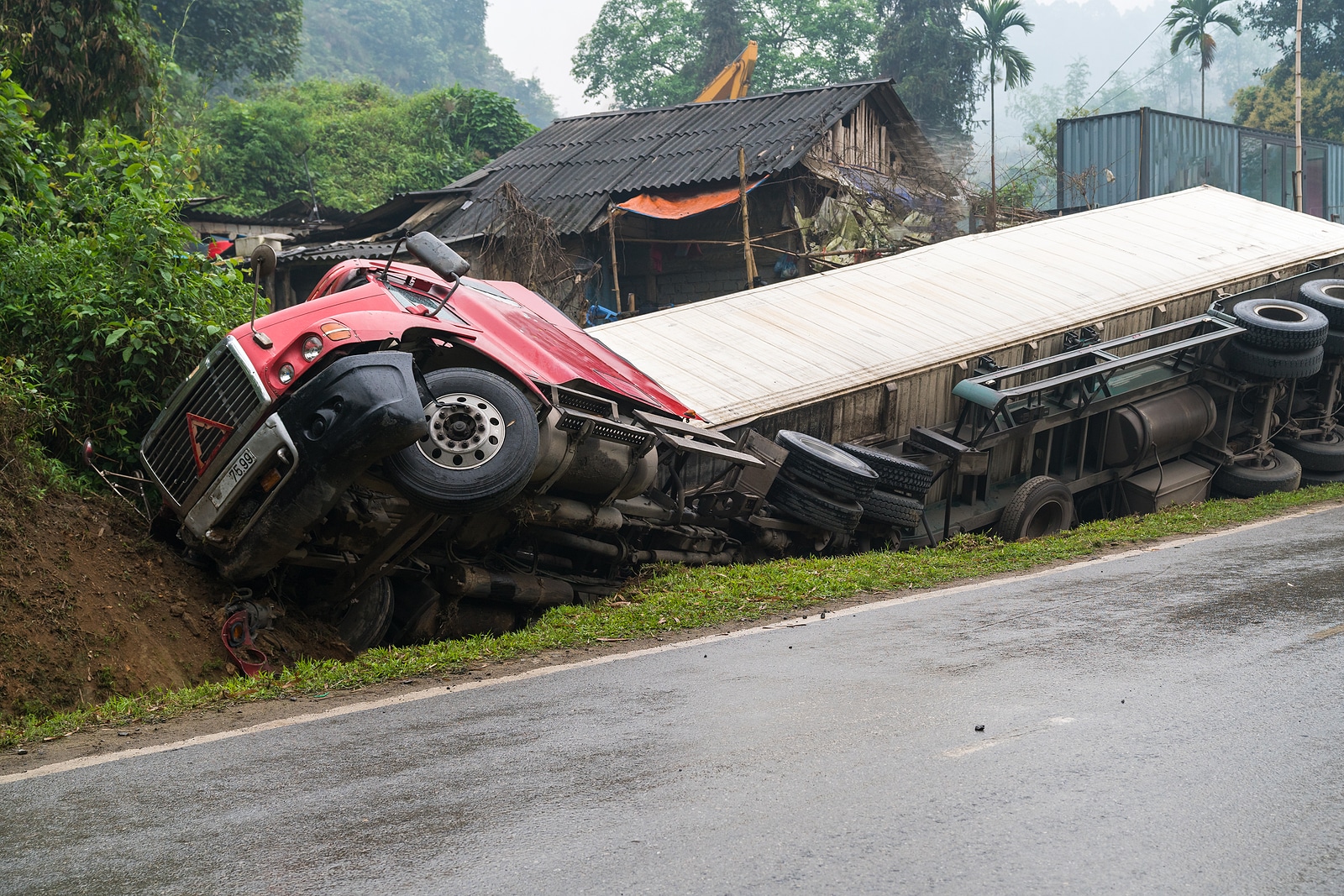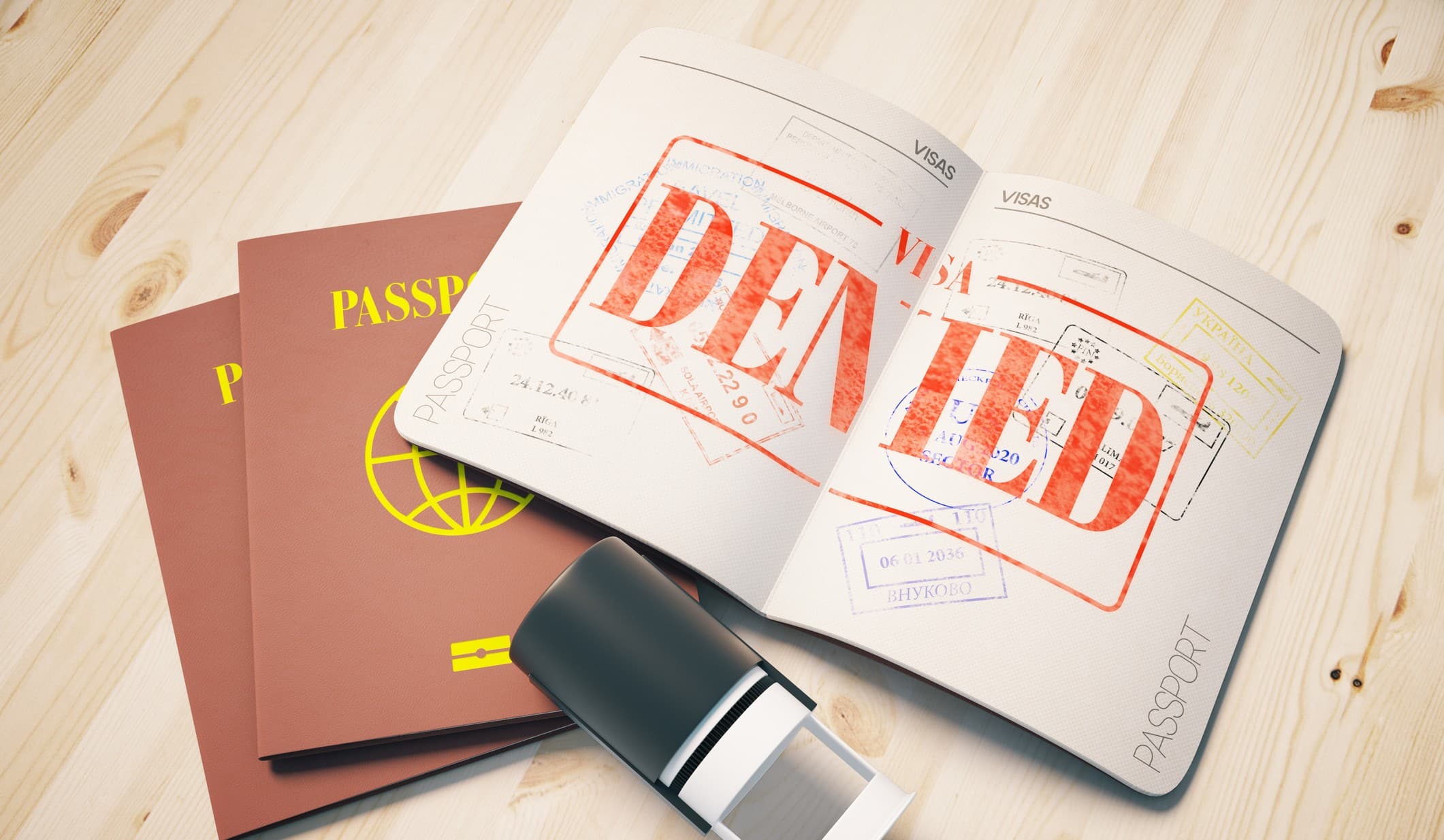What Regulations Help Prevent Truck Accidents?
The Federal Motor Carrier Safety Administration is the governing body that oversees and regulates truck safety. It is responsible for setting the standards for many aspects of transportation, driving, and loading practices, such as maximum driving hours, vehicle maintenance standards, load securing requirements, driver qualification standards, and insurance minimums. Failure to uphold these regulations can serve as a crucial step in establishing liability in the event of an accident.
What are Common Causes of Trucking Accidents?
Truck drivers and companies are under constant pressure to maintain safety standards while also meeting strict deadlines. This combination results in a staggering 85% of all trucking accidents being caused by motorist or truck driver error. There are many reasons an accident may occur, but the following list contains the most common reasons:
- Fatigue
- Distracted driving
- Speeding
- Drug or alcohol use
- Failure to yield
- Use of improper lane
- Following too closely
- Poorly maintained truck
- Inadequate training
Trucking accidents tend to be more severe due to the size of the vehicle and may result in the following injuries:
- Quadriplegia or paraplegia
- Back, neck, and spine injuries
- Severe burns
- Traumatic brain injuries
- Broken bones
- Amputations
- PTSD
- Death
Who Can be Held Liable for a Trucking Accident?
Each link in the chain of loading and transporting cargo may be responsible for an accident, meaning there may be many parties liable, such as:
- The truck manufacturer: A faulty or defective part or mechanical system can cause the driver to lose control of their vehicle, which in turn holds the manufacturer of the truck, trailer, or specific part liable.
- The truck company: In most cases, the truck company is at least partially responsible for accidents because it oversees the fleet’s maintenance, makes schedules, hires and trains drivers, and loads cargo. As the supervisor of the entire trucking operation, the company must ensure that safety standards are upheld throughout the process.
- The truck owner: When a truck is not owned by a company or the driver of the truck, the owner could be responsible for a mechanical issue or lack of maintenance that contributed to the accident.
- A third-party maintenance crew: Safety inspections, tune-ups, and other repairs may be outsourced to a separate company, which can result in liability.
- A third-party loading company: Similarly, cargo loading may be trusted by an outside source, which can result in liability.
- The truck driver: In most cases, the truck driver is at least partially responsible. It is ultimately the driver’s job to inspect the truck and the load, adhere to federal hours of service laws, and avoid distracted driving.
- A municipality or construction company: Sometimes, an accident may be caused by poorly marked construction zones, hazardous road conditions, dangerous road design, or potholes. These situations result in holding the party who manages the road to be responsible for the accident.
How is Liability Determined in a Trucking Accident?
Liability for any motor vehicle accident is determined based on the legal theory of negligence. Negligence is based on establishing four basic elements:
- Duty of care: The liable party or entity had a legal obligation to act with a reasonable expectation of safety and care.
- Breach of duty: That party failed to uphold this obligation by acting recklessly.
- Causation: The breach of duty or reckless behavior is directly responsible for the accident.
- Damages: The accident resulted in actual damages for the injured party.
As discussed, multiple parties may be responsible for an accident. When this occurs, comparative and contributory negligence are used, and they will be discussed below in further detail.
Comparative Negligence
In most states, including South Carolina, a system of comparative negligence allocates fault and determines the portion of damages that each party is responsible for.
For instance, if a trucking company is 30% responsible for an accident, a truck driver is 60% responsible, and the injured party is 10% responsible, then the company would be responsible for 30% of the damages, the driver would be liable for 60% of damages, and the injured party would not receive the 10% of damages that they are responsible for.
Furthermore, comparative negligence can be broken down into pure and modified comparative negligence.
Pure comparative negligence allows for the recovery of damages even if the victim is responsible for a majority of fault in the accident. In contrast, modified comparative negligence does not allow recovery of damages if the victim is responsible for 51% or more of an accident.
Contributory Negligence
Only four states recognize contributory negligence, which states that if the victim is found to be at all responsible for an accident, they are barred from recovering damages.
What Evidence is Useful for a Successful Trucking Accident Claim?
Unlike passenger vehicle accidents, commercial trucking accidents typically involve extensive property damage and substantial injuries, which results in meticulous evidence collection and preservation efforts. Key evidence that may be used includes:
- Electronic Logging Device data
- Driver logs
- Driver qualification files
- Drug and alcohol testing results
- Cargo loading documentation
- Vehicle maintenance records
- Witness statements
How Long Do I Have to File a Trucking Accident Claim?
The statute of limitations, or time limit, to file a trucking accident claim varies by state. In South Carolina, a claim must be filed within three years of the date of the accident. While there are certain exceptions to this timeline, most claims filed outside of this limit will result in the case being dismissed.
Do I Need an Attorney?
If you or a loved one have been involved in a trucking accident, you need reliable legal help immediately. With so many parties and insurance companies that may be responsible, you must have someone on your side who is knowledgeable about trucking regulations and ready to fight on your behalf. Call Hall Trial Lawyers, PLLC, today at 877-564-0605 or fill out a contact form to schedule a free 15-minute consultation.


